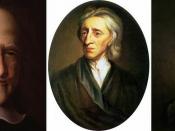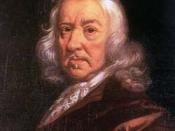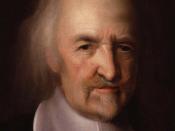The seventeenth and eighteenth centuries were witness to several intellectual revolutions in Europe. Thinkers during this time were influenced by the likes of Newton, Bacon and Descartes of the Scientific Revolution. These scientific thinkers had managed to discover several laws of nature that seemed to regulate the way in which the universe functioned. Inspired by these developments, Enlightenment thinkers of the eighteenth century attempted to make similar breakthroughs in the fields of society and government. Human nature, they claimed, was subject to laws and limits, just as nature was. If these laws could be discovered it would be theoretically possible to predict a person's actions and behavior. In fact, one late philosophe, Antoine-Nicholas Condorcet, felt that if history could be correctly interpreted it would be no great feat "to sketch, with some pretence to truth, the future destiny of man"(174).
Thomas Hobbes, John Locke and Jean-Jacques Rousseau were three thinkers of this revolutionary period who dealt extensively with the question of human nature and the existence of legitimacy in governments.
For these three men, the two issues were closely related. How people thought and reacted in certain situations played a large role in determining the social structure under which they lived. The differing views of human nature dictated how much power a sovereign required and under what circumstances this power could be used. This paper will examine their explanations of human nature and the progressions towards the social contract they deemed necessary for a legitimate government.
Chronologically, Thomas Hobbes was the first of the three to tackle the idea of political legitimacy. Before examining his theories, however, one must look at his life to fully appreciate his point of view.
Hobbes grew up in England in the early seventeenth century during a time of insurrection. He was well...


